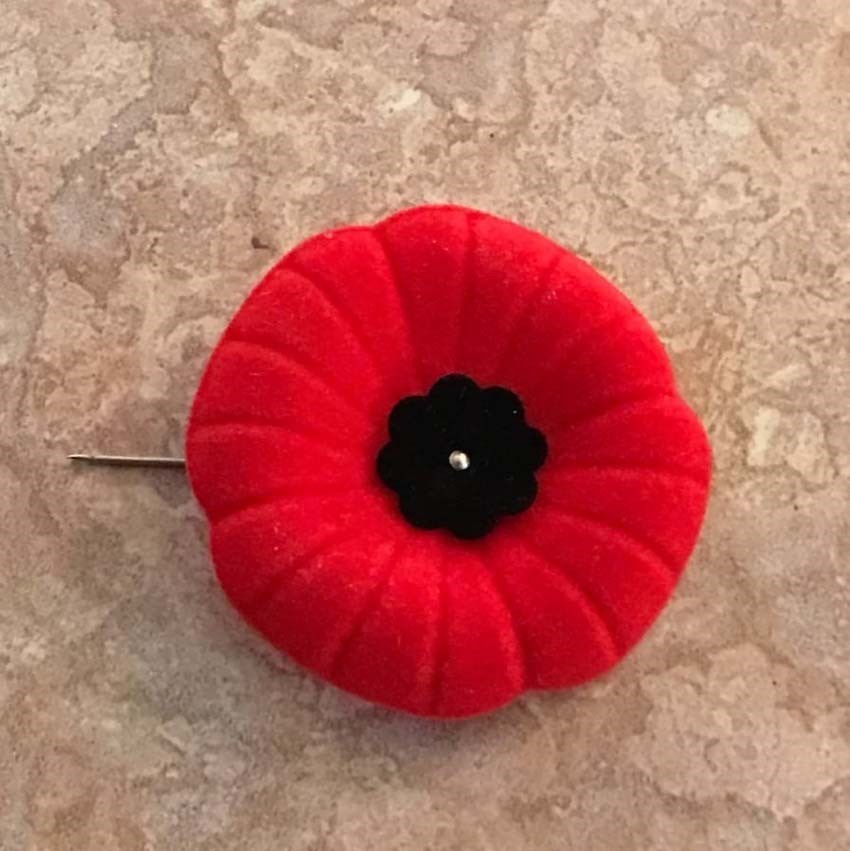YORKTON - Remembrance Day is jast. Do you think we will ever come to this day without fighting going on somewhere in the world? Maybe not. It was the time to wear the poppy, the symbol of remembrance.
During WWI, poppies came up in areas of the worst fighting along the Western front. Why? The soil was so mangled and disrupted by endless shelling; this disruption of the soil is what the poppies needed to germinate. Papaver rhoeas, also called the red-flowered corn poppy, is found throughout Europe and in many parts of the world. It is an annual and is considered a weed. The seeds can lie dormant in the soil for a long time until they are disturbed. The plants grow about two feet high and can produce many blooms over a season. The blooms don’t last long, but come steadily, and they’re very showy, usually red with black at the throat. The plants are totally easy-care, require no maintenance, and will easily seed themselves. They look beautiful and free and unstructured, making them a lovely choice for a rock garden area or a “meadow” look in our gardens.
So now let’s turn from our gardens back to the battlefields of World War One. It is difficult to imagine that the soil, churned up with war and soaked with the blood of so many soldiers, became a bright field of red poppies. Life amongst death. It was this eerie sight that inspired solider John McCrae to write “In Fladers Fields” in Ypres in 1915.
“In Flanders fields the poppies blow…Between the crosses, row on row…That mark our place…”
What a sight—no wonder the young man was so moved to write this beautiful poem that still makes us pause and wonder so many years later.
The Legion website (legion.ca) tells us this: “From the last Friday in October to Remembrance Day, millions of Canadians wear a Poppy as a visual pledge to never forget those who served and sacrificed… We invite everyone across the country to show their recognition by proudly wearing this symbol of Remembrance.”
If you want more inspiration about the brave men and women who made the ultimate sacrifice for our freedom, please also visit the veterans.gc.ca site You will find ‘histroical sheets’ with information about many battles in over the years, all over the world.
You can also read about brave Canadians who fought for our freedom. I will borrow a short story from the government Veterans site: “David Greyeyes, a member of the Muskeg Lake Cree Band in Saskatchewan, served in seven European countries in many difficult military roles, including commanding a mortar platoon in Italy. During the Italian Campaign, he earned the Greek Military Cross (third class) for valour in supporting the Greek Mountain Brigade. In 1977 he was awarded the Order of Canada. His citation reads: "Athlete, soldier, farmer, former Chief of the Muskeg Lake Reserve, Saskatchewan, and ultimately Director of Indian Affairs in the Maritime and Alberta Regions. For long and devoted service to his people, often under difficult circumstances."
'Kahgee pohn noten took' …the fighting has ended. We will remember.
To Uncle Clifford, who died at Vimy Ridge before he had a chance to see his 19th birthday, we will remember.
To David Greyeyes, Chief Joe Dreaver, Charles Byce…and so many brave men and women who went to war, and those that did not come home…we will remember.
On Remembrance Day, please wear a poppy with gratitude, and take time to remember. Vist the hort society at www.yorktonhort.ca and have a good week.






